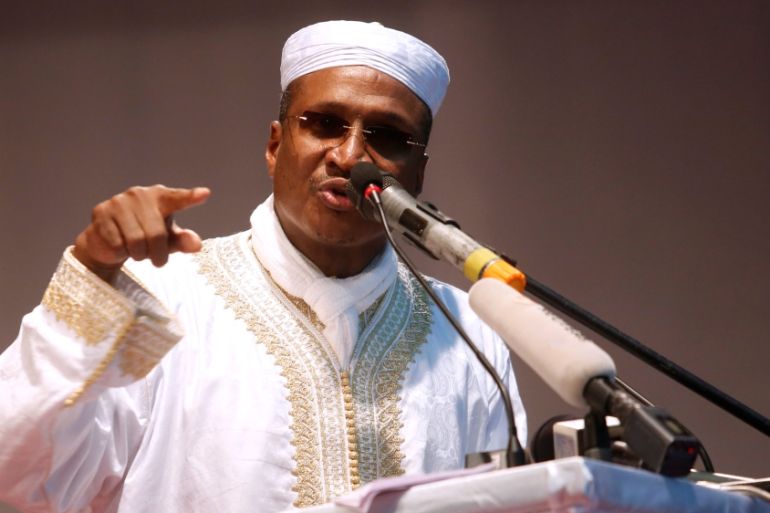Mali: Blow for Cisse as opposition leaders decline runoff support
Third and fourth-place finishers in first round of Mali’s election refuse to endorse either of second-round candidates.

The third and fourth-place finishers in the first round of Mali‘s presidential election have declined to endorse neither frontrunner in Sunday’s runoff vote, dealing a blow to opposition leader Soumaila Cisse‘s hopes of defeating President Ibrahim Boubacar Keita.
Keita, who is seeking a second term, came in first in the July 29 poll with over 41 percent of the vote.
Cisse finished second with nearly 18 percent.
The opposition leader has alleged there was widespread fraud in the first round and has been trying to unite the other two dozen candidates behind him for Sunday’s vote.
He also urged the 22 candidates eliminated in the first round to create a “broad democratic front against fraud and for political change”.
But businessman Aliou Boubacar Diallo and former Prime Minister Cheick Modibo Diarra, who came in third and fourth place respectively, said on Thursday they would not rally behind anyone.
“Neither IBK (Keita) nor Soumi (Cisse) corresponds with our political ideal. I will not support one or the other. Each person who voted for me is free to vote for whom they wish,” Diarra, who won seven percent in the first round, told supporters in the capital, Bamako.
Diallo told his followers that it was “to Malians that I leave the responsibility of expressing themselves as they wish in the second round.”
Mali’s Constitutional Court on Wednesday rejected a legal challenge to the first round of voting in the presidential election, confirming August 12 as the date for the runoff.
|
|
Armed attacks and other security incidents disrupted voting at about a fifth of polling places in the election and prevented around three percent from opening at all.
That has fueled doubts about the election’s credibility and worries that it did not fully reflect the will of Malians.
In the past three years, attacks have tripled and violent deaths have doubled, according to civil society website Malilink.
The United Nations said last month nearly 300 Malian civilians had been killed this year in inter-communal violence, which has been stoked by groups linked to al-Qaeda and Islamic State of Iraq and the Levant (ISIL, also known as ISIS).
The international community is hoping the outcome of the poll will strengthen a 2015 peace accord, whose meaningful implementation has been challenging.